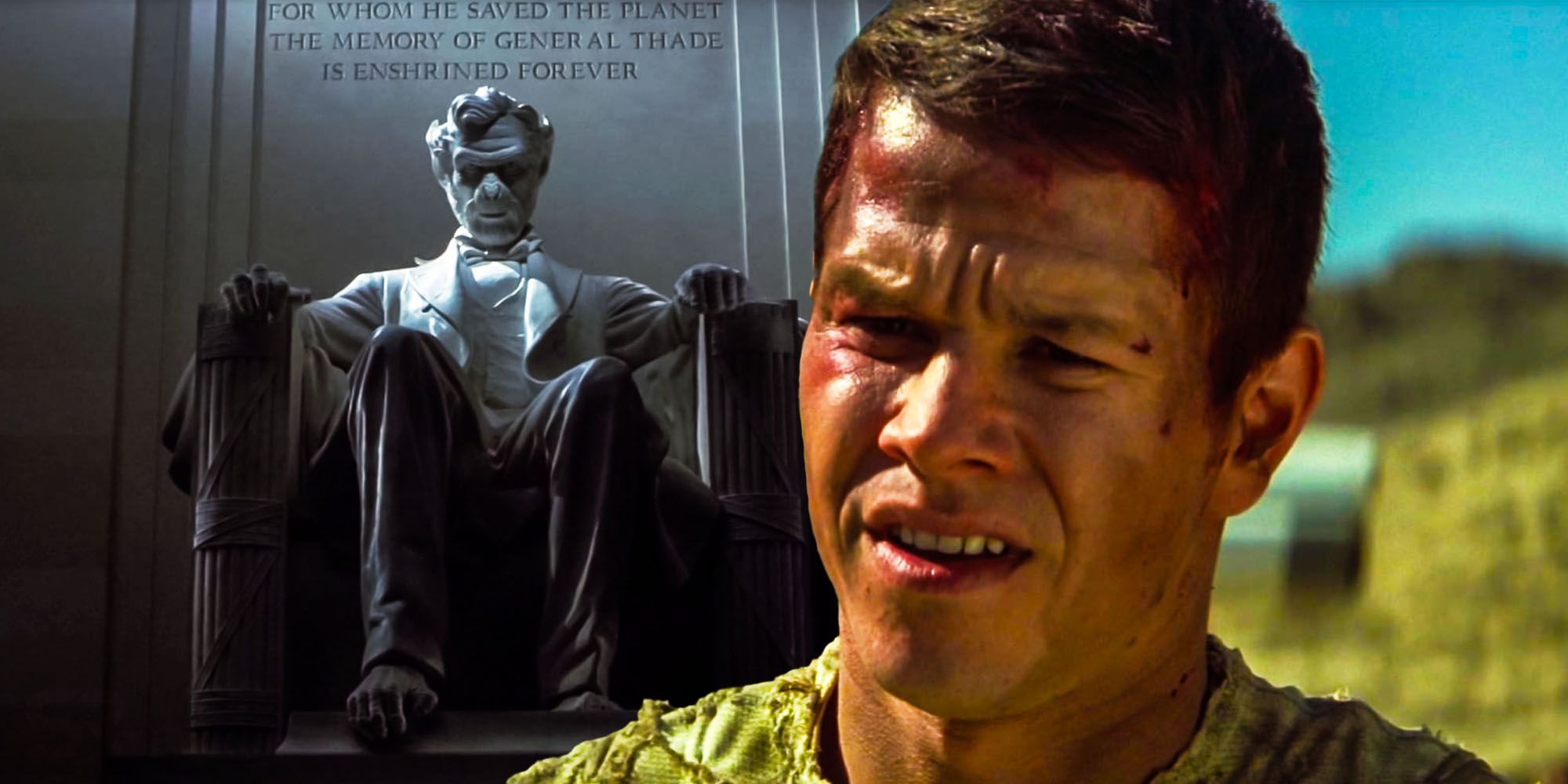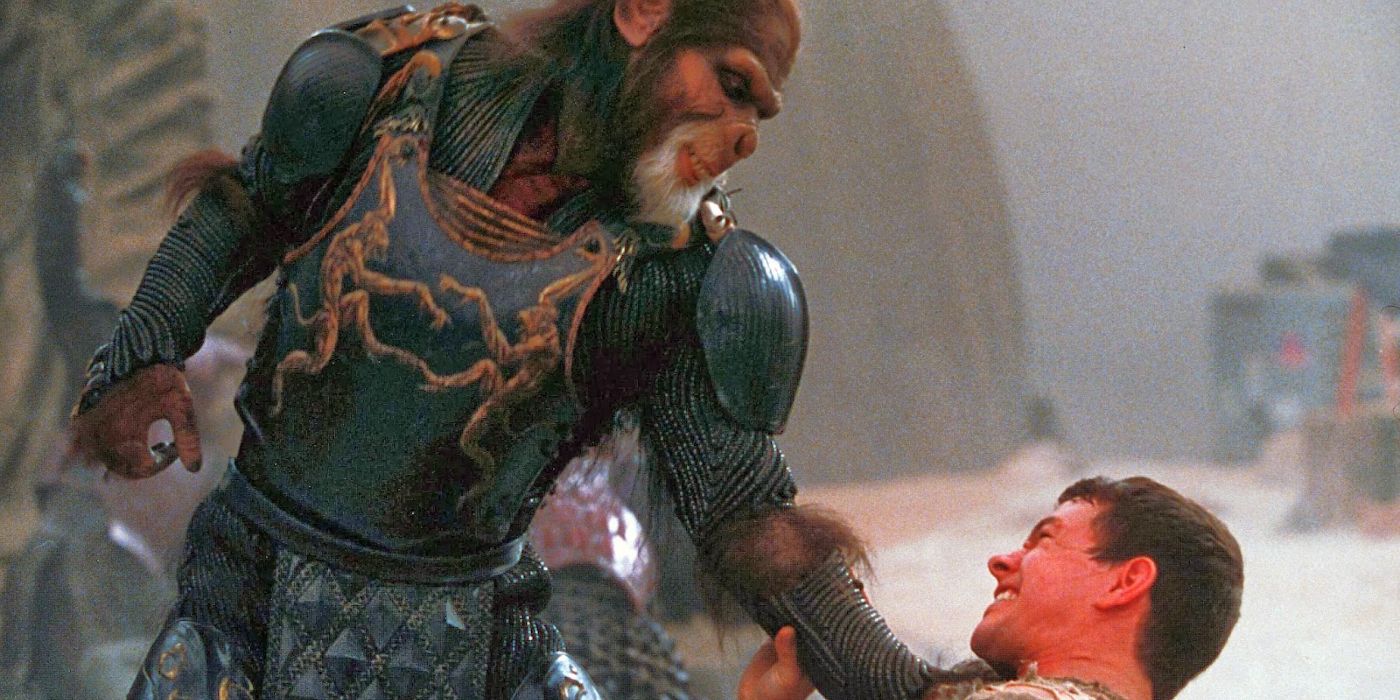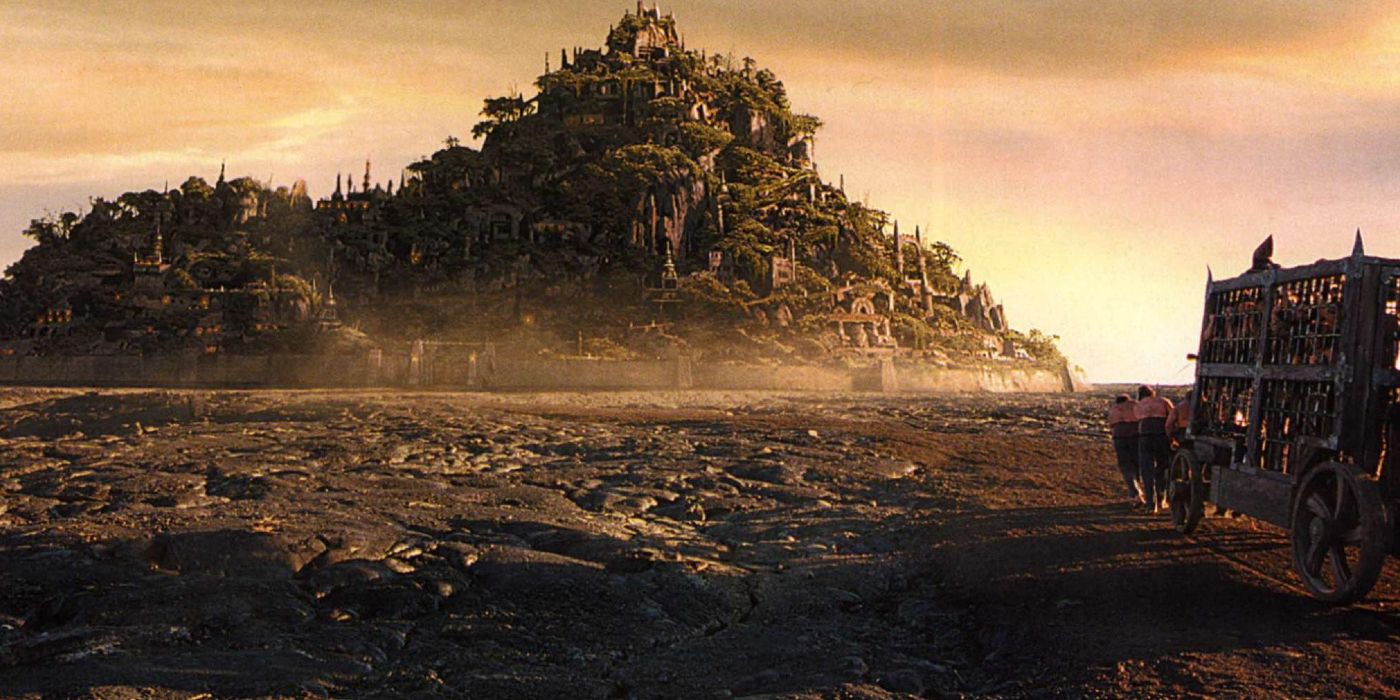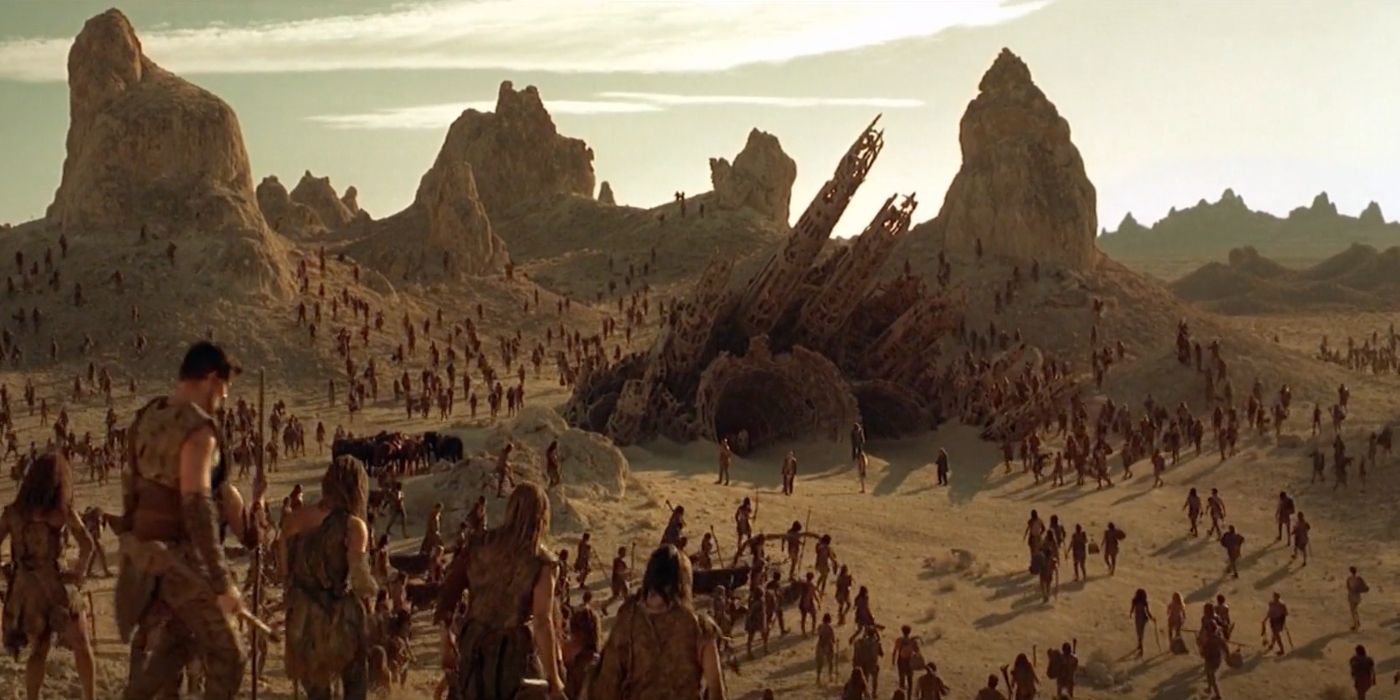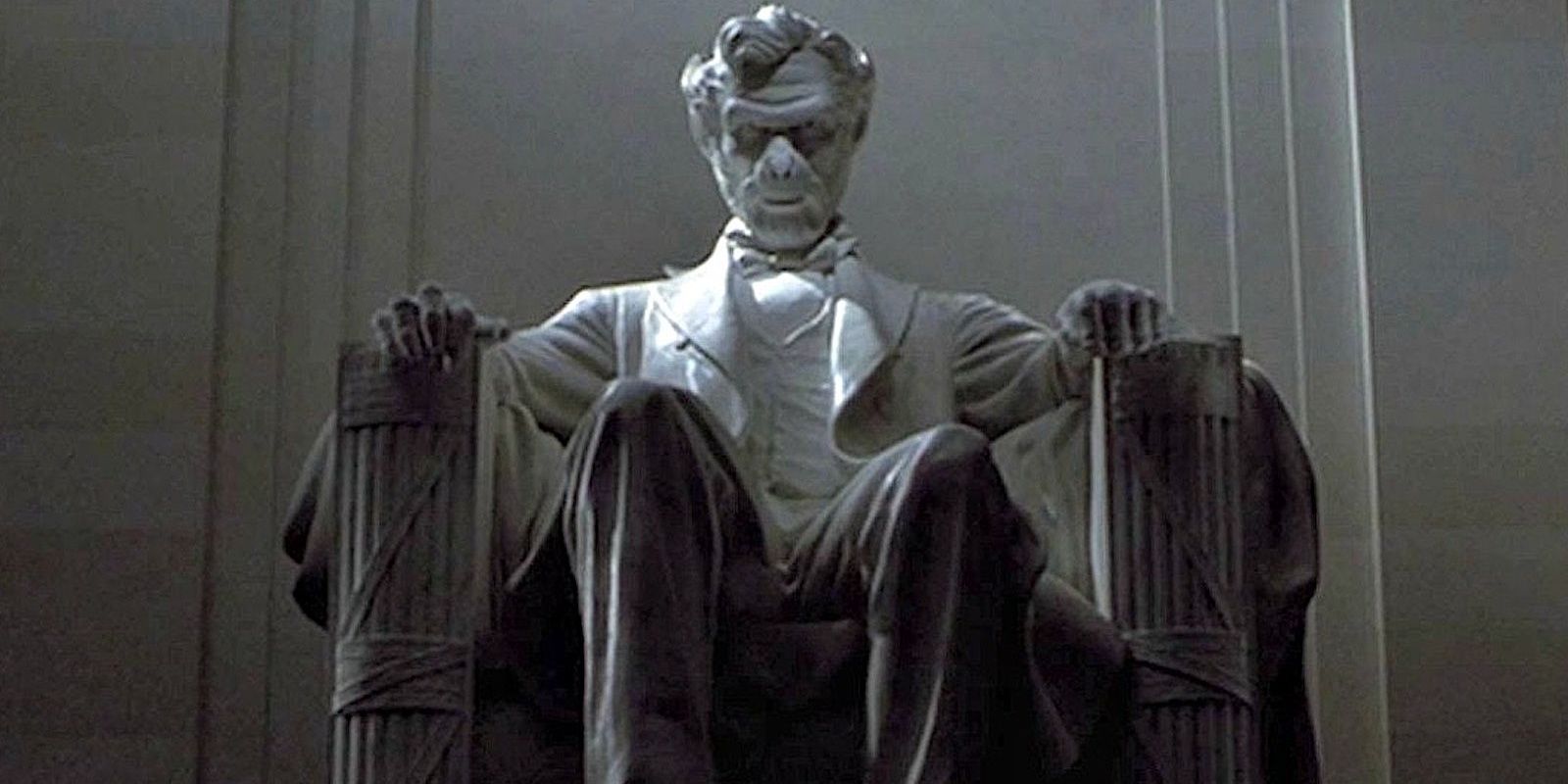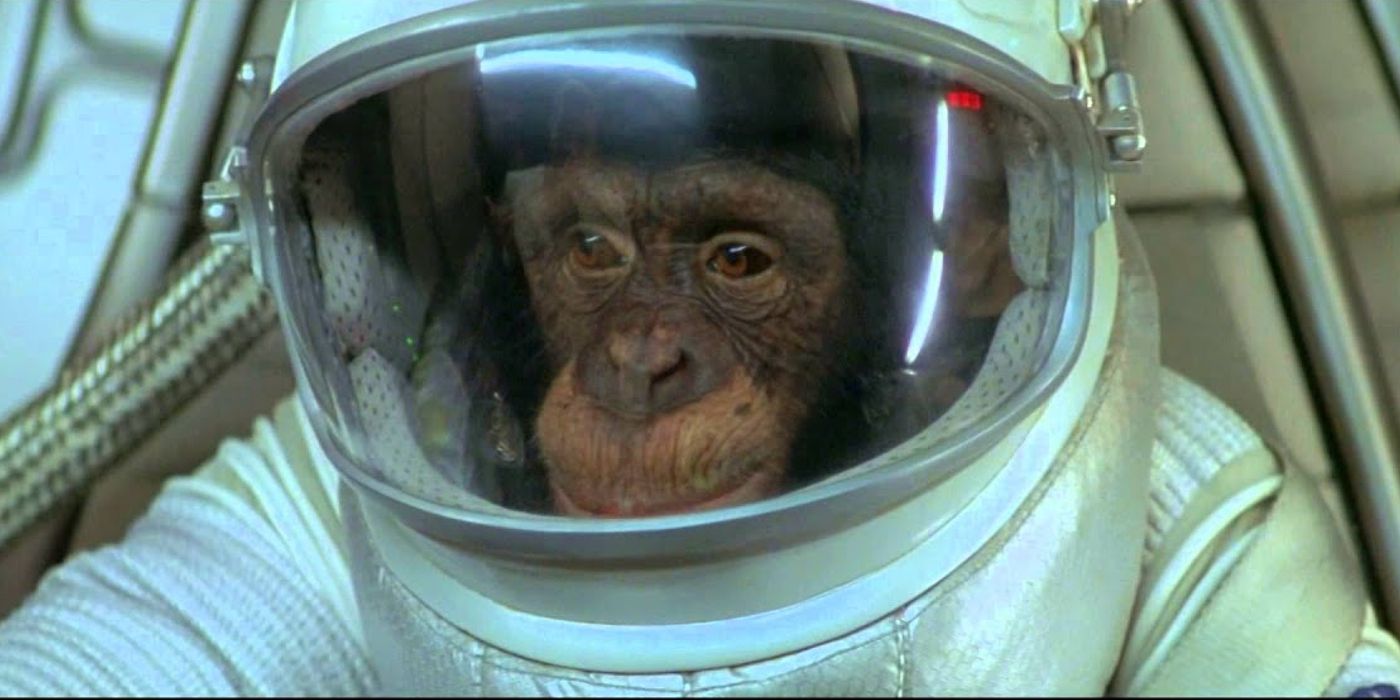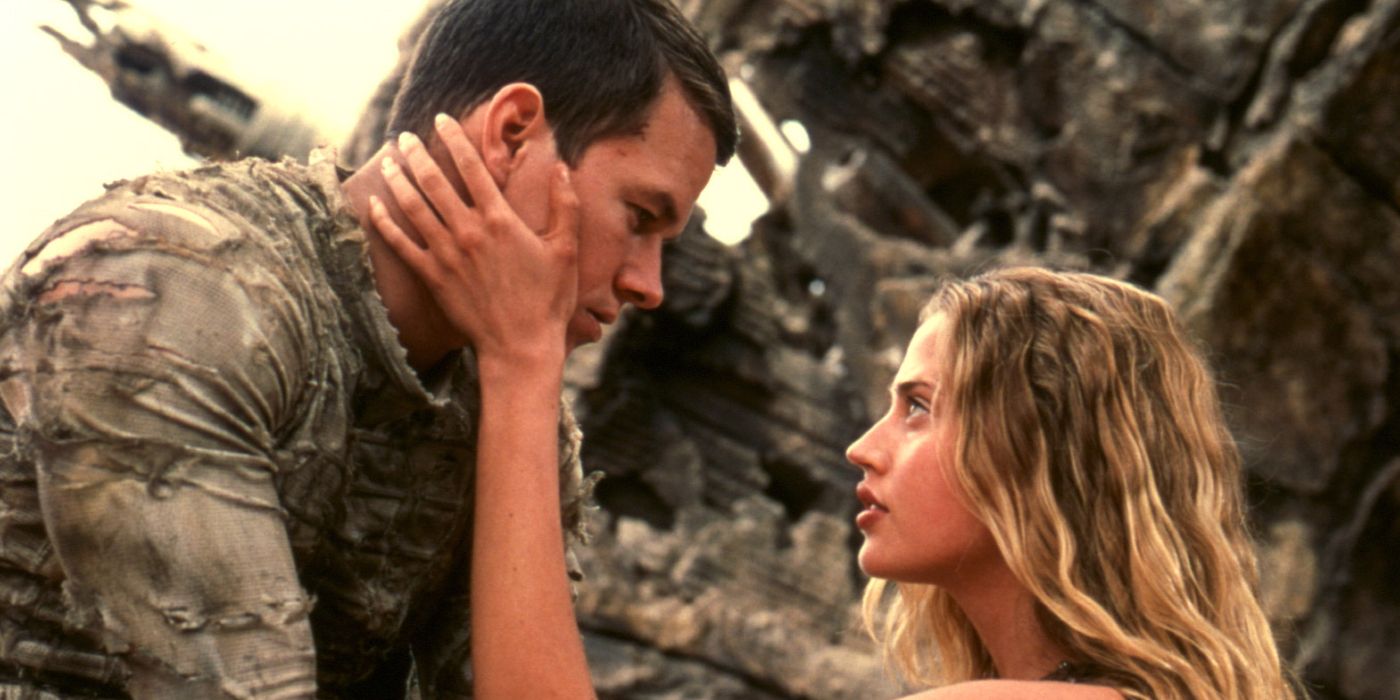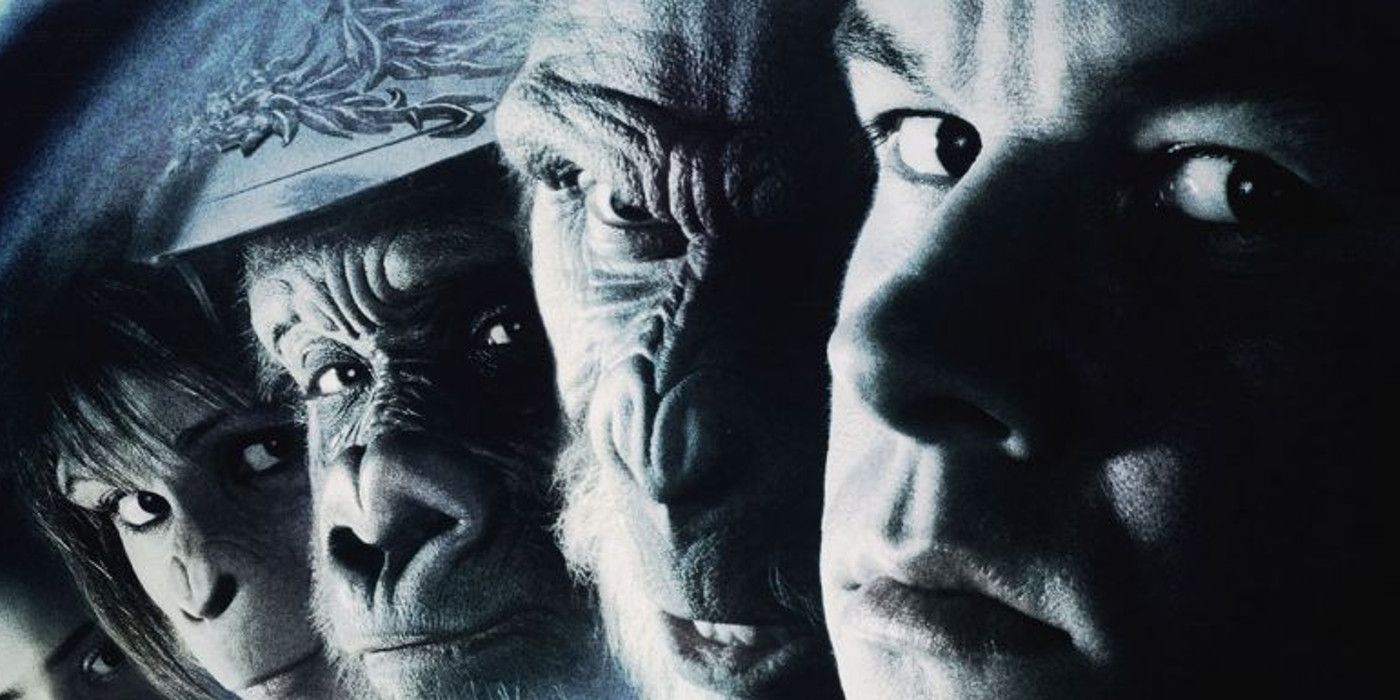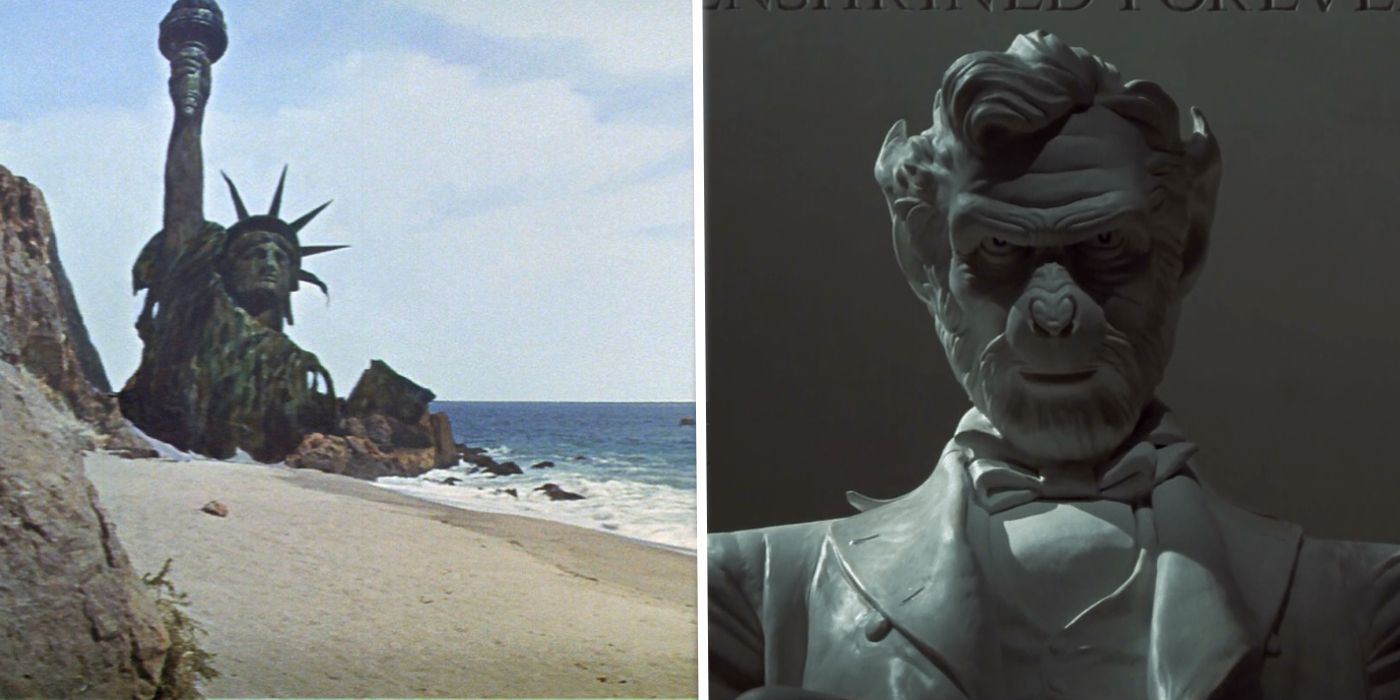Summary
- Tim Burton's 2001 Planet of the Apes film received mixed reviews, with many citing the confusing ending as a notable negative.
- Leo Davidson's journey in the film involves time travel, as he goes from the year 2020s to the 51st century and then back to his own time.
- The Planet of the Apes prequel trilogy, starting with the 2011 film Rise of the Planet of the Apes, fixed the mistakes of Burton's remake and is considered a resounding success.
Ever since its release, there has been intense debate over what Tim Burton's Planet of the Apes' ending really means. A remake of the massively popular 1968 film of the same name, the 2001 film stars Mark Wahlberg as Leo Davidson, an astronaut who crash-lands on a planet inhabited by intelligent apes. It's in its premise alone that Planet of the Apes' similarities to the original film lie, however. Despite updating the franchise with a more modern sci-fi aesthetic, Tim Burton's Planet of the Apes received mixed reviews, with many citing the film's confusing ending as a notable negative.
In the Tim Burton Planet of the Apes remake, Leo Davidson (Mark Wahlberg) is transported by an electromagnetic storm to the year 5021, where he crashes on a planet identified as Ashlar. From there, Davidson's story only vaguely resembles the plot of the original Planet of the Apes movie. This culminates in an ending as baffling as it is unexpected, making the 2001 Planet of the Apes ending one of the most notorious movie climaxes of all time. Fortunately, Burton's uncharacteristic misfire didn't doom the franchise completely, although it would be another ten years before the 2011 reboot Rise of the Planet of the Apes hit theaters and did the original 1968 classic justice.
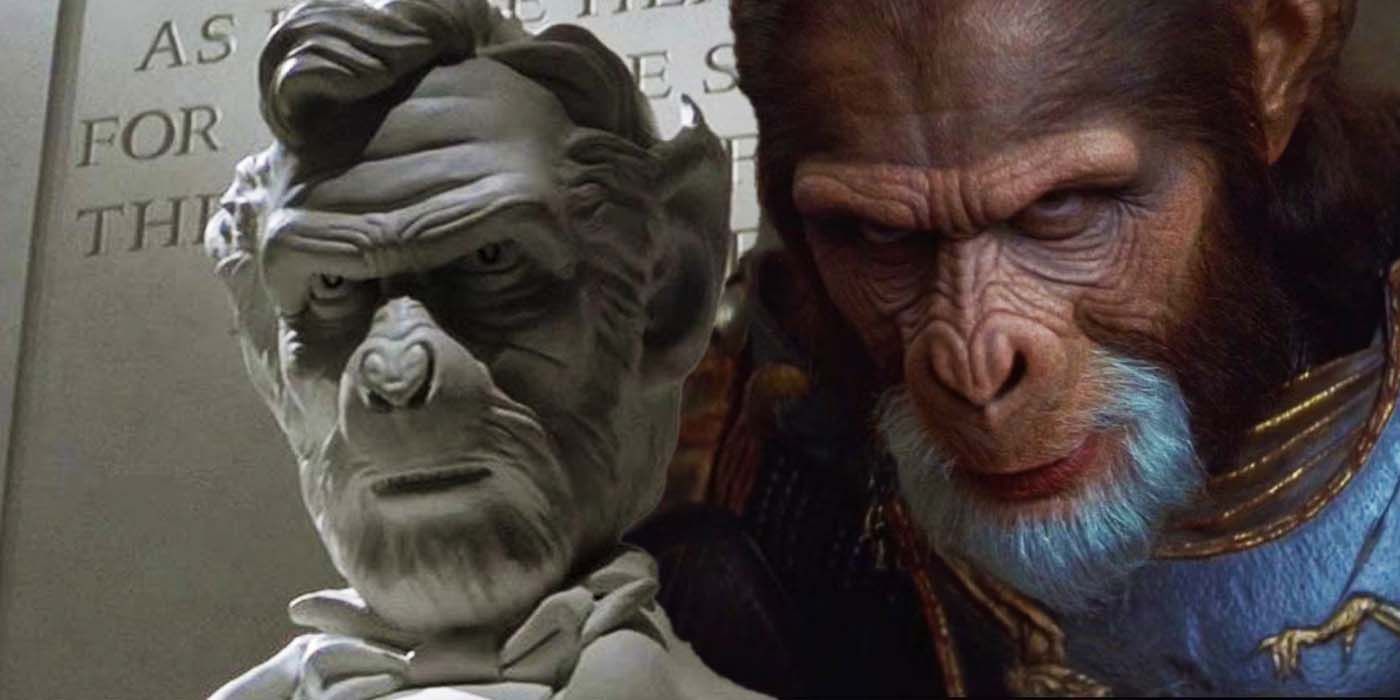
Tim Burton’s Planet Of The Apes Wasn’t Good, But It Deserved A Sequel
The 2001 version of Planet of the Apes by Tim Burton wasn’t a good movie by most standards, but the ending alone made it worthy of a sequel.What Happens In Tim Burton's Planet Of The Apes' Ending
Leo Changes History In The 2001 Planet Of The Apes Remake
In Tim Burton's Planet of the Apes, Mark Wahlberg's Davidson discovers that his former crewmates crash-landed thousands of years before his arrival while attempting to rescue him, which seeded both ape and human life on Ashlar and formed the basis for the apes' oppression of humans. In Planet of the Apes' confusing timeline, Leo is then met by Pericles, the chimpanzee he followed into the storm at the beginning of the film.
This ceases hostilities between humans and apes and allows Leo to use Pericles' intact pod to fly back into the storm in the hopes of returning home. This is where the 2001 Planet of the Apes ending veers into full-on Tim Burton weird territory, and it unfortunately backfired. What was doubtless conceived as an intriguing ending was actually just confusing, and neither audiences nor critics responded well to it.
Upon flying into the electromagnetic storm and being returned to his own time, Leo sets a course for Earth, eventually crash-landing on the steps of the Lincoln Memorial. Entering the memorial, he sees that Lincoln's statue has been replaced with one of General Thade, and as he looks on in horror, he's surrounded by a simian police force. The lack of context for Planet of the Apes' ending changes the originals by effectively flipping it around — instead of realizing he's in the future, Leo returns to his own time only to find it controlled by apes.

Every Single Planet Of The Apes Movie (In Chronological Order)
The Planet of the Apes timeline is a bit confusing, so we arranged them in their proper chronological orderDid Leo Time Travel In Tim Burton's Planet Of The Apes?
Mark Wahlberg Went Back In Time At The End Of The 2001 Planet Of The Apes
While the Tim Burton Planet of the Apes ending makes it far more confusing than was strictly necessary, the short answer is yes: Leo time traveled. His pod's console indicates that he crash-lands on Ashlar in the 51st century, and towards the film's climax, he returns to his own time in the 2020s. However, the film's General Thade twist makes this slightly more ambiguous, making it unclear whether his pod's console was entirely accurate.
Was Tim Burton's Planet Of The Apes Set On Earth?
The 2001 Remake Ignored The Coolest Part Of The Planet Of The Apes Premise
In the original film, the twist ending revealed the titular planet was Earth all along. However, Tim Burton's Planet of the Apes subverts expectations by taking place on another planet called Ashlar. Despite Burton's Planet of the Apes having talking humans and Earth-like conditions, its planet is shown to be a separate place on which life was seeded by the crash of the Oberon. The film's final scene shows Leo returning to Earth as guided by his pod's console, indicating that the apes also somehow took over his home planet after the events of the film.
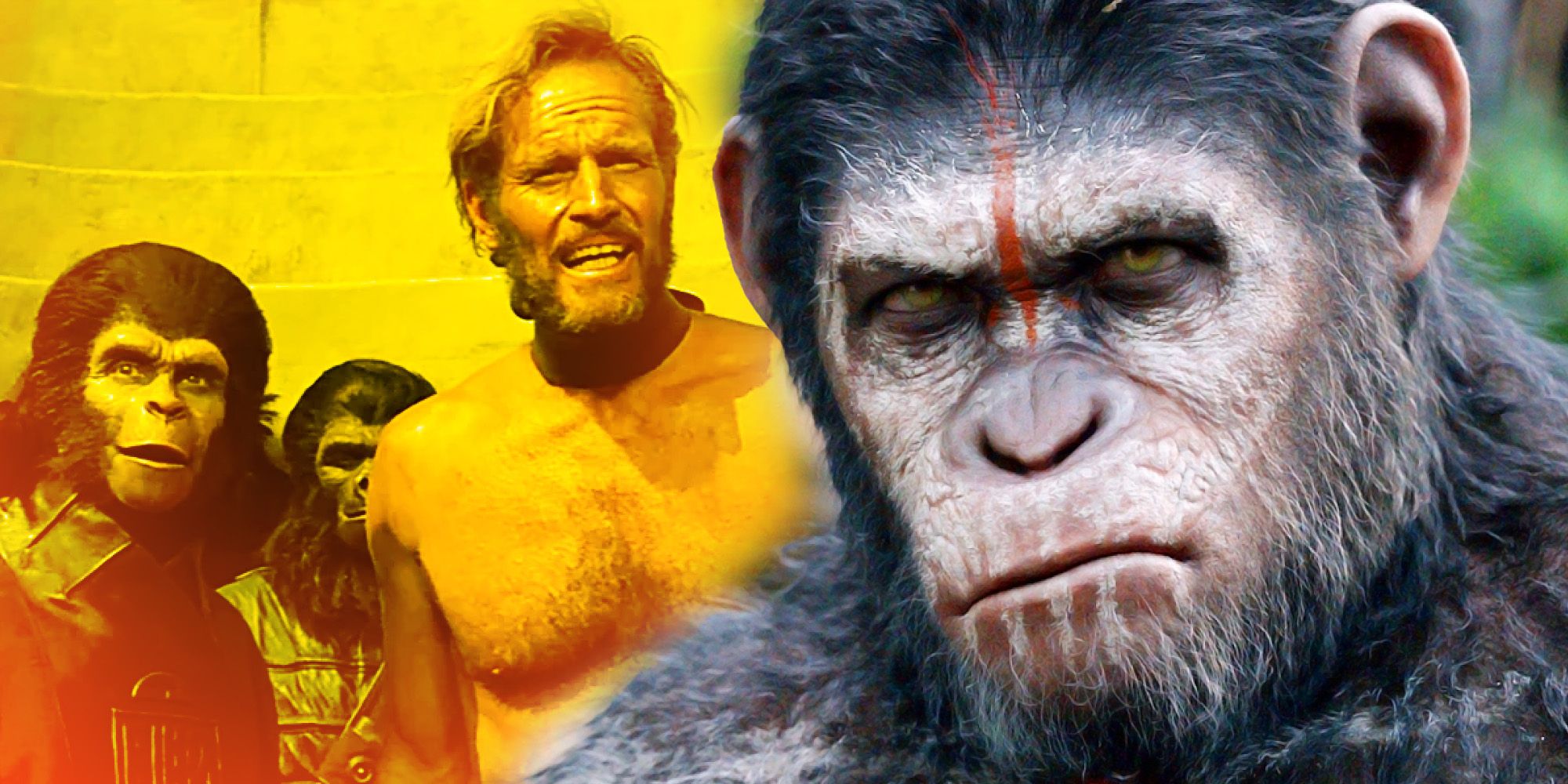
6 Biggest Differences Between Planet Of The Apes' Reboot Timeline & The Original Movies
The modern Planet of the Apes franchise re-imagines many elements of the original series, and makes some big changes to them.What The Statue Of General Thade Means
Thade Followed Leo Through The Storm And Conquered Earth
The film's climactic scene reveals a huge memorial to General Thade, Tim Roth's human-hating villain. With very little context, one must look to Planet of the Apes' finer details to extrapolate its exact meaning. The inscription on the wall behind the statue indicates a possible explanation for a "gotcha!" moment more divisive than even M. Night Shyamalan's twist endings.
The inscription explains that Thade saved apes from humans, hinting that he somehow came to Earth and conquered it and that Leo has entered an alternate timeline. This conclusion requires a few leaps of logic, but the film itself provides some evidence for it. For one, there is some semi-intact technology left on Ashlar, and the electromagnetic storm has proven itself to be a wormhole through time and space. If Thade was somehow able to access the technology and then the time-traveling capabilities of the storm, he possibly could have appeared on Earth long before Leo's return.
What Happened To Pericles
The Chimp Pilot In Tim Burton's Movie Probably Had A Happy Life
Perhaps the most charming of the 2001 Planet of the Apes' original characters was Pericles, the chimp pilot from the beginning and end of the movie. However, despite his sudden appearance in the film's climax saving Leo's life, Planet of the Apes leaves his fate ambiguous. He's left on Ashlar when Leo flies his pod back into the storm to return home, but his fate after that is largely unknown.
From the societal change Leo has seemingly inspired on Ashlar, it's possible that Pericles is treated well after his former trainer leaves. However, given the apes' newly divided society, it's also possible that Pericles would become the subject of much debate, both scientific and societal. Either way, Pericles' future was most likely a pleasant one, as Helena Bonham Carter's Ari promised Leo she would look after him.
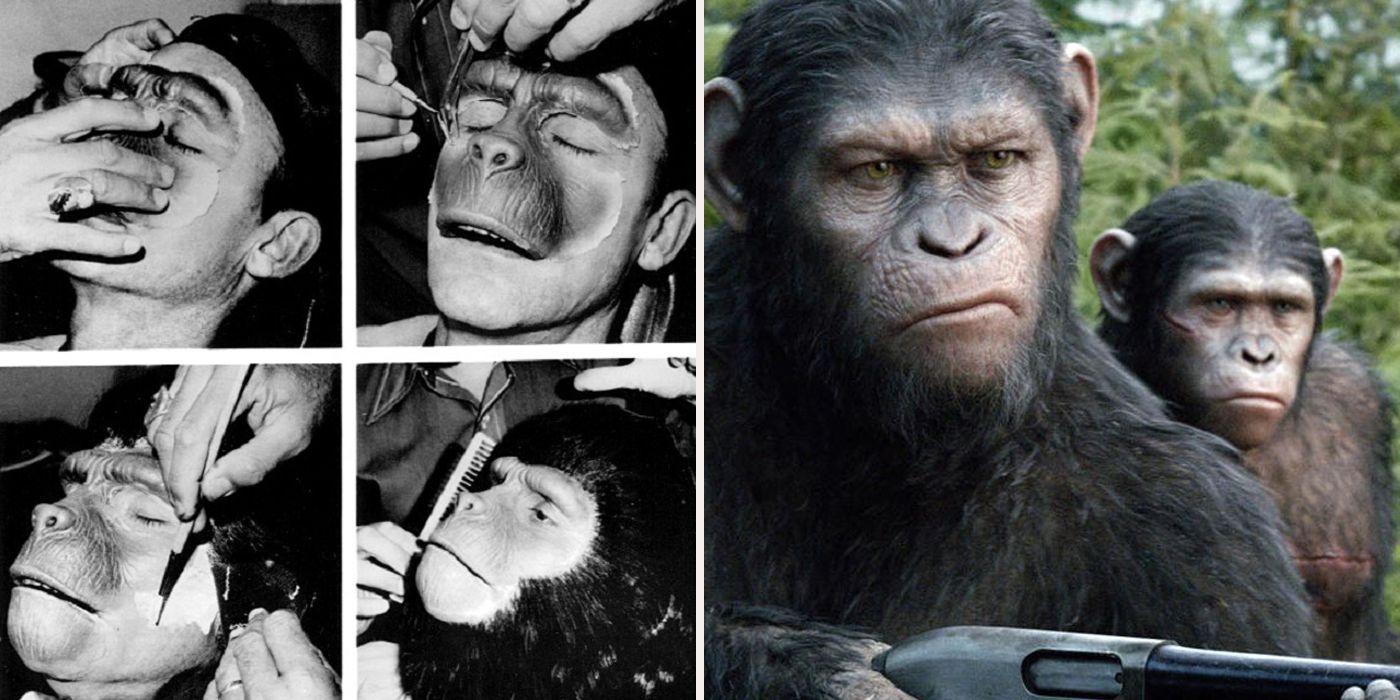
15 Things You Didn't Know About The Planet Of The Apes Franchise
With the release of War For The Planet Of The Ape, it's time to look back on the franchise and learn about its many secrets.The Planet Of The Apes' Themes Explained
Animal Welfare Is The Core Of The Movie's Message
Like most Planet of the Apes movies, including the prequels, Tim Burton's film comes with an inherent message of animal rights. It explores most of the same ideas as the 1968 original, with one notable addition: the brief exploration of mankind's usual role as the aggressor. There's some societal commentary in the film as well, particularly regarding the apes' inhumane treatment of their human slaves.
The Real Meaning Of Tim Burton's Planet Of The Apes' Ending
The 2001 Remake Tried (And Failed) To Be Thought Provoking
With its confusing final twist, Tim Burton's Planet of the Apes ending gets a little messy. However, much of the film's Ashlar story is wrapped up nicely, and it's Leo's journey home that creates most of the film's narrative issues. Leo's abrupt realization that he has not returned home to the Earth he originally left is intended to be a horrifying and thought-provoking climax, but without the proper context, it's nothing more than a baffling final image.
In an attempt to emulate the iconic ending of other Planet of the Apes movies, Tim Burton's film reveals that apes have conquered Earth, after all. This could see the film interpreted as a cautionary tale about tampering with the unknown, particularly where space and time are concerned. It's Leo's disregard for his orders that precipitates the whole movie's plot, and by seeding Ashlar's society and then granting them access to sophisticated technology, he seemingly dooms his own home planet, too.
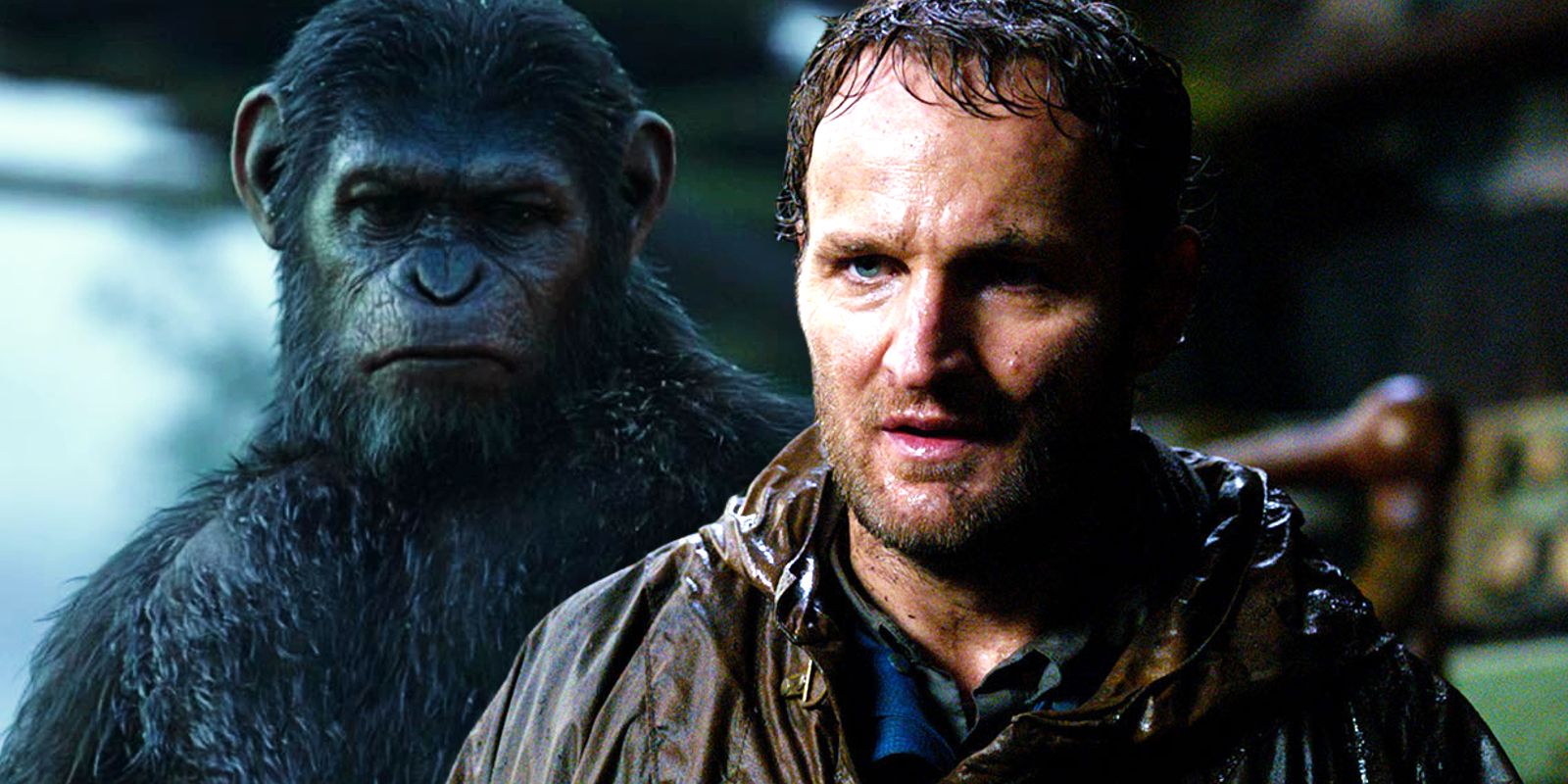
Planet Of The Apes Reboot Trilogy Avoided 1 Sci-Fi Movie Problem
Michael Bay’s Transformers and the MonsterVerse films are examples of a recurrent sci-fi trope that Planet of the Apes fortunately avoided.Why Tim Burton's Planet Of The Apes Changes Were So Divisive
The 2001 Remake Couldn't Find The Balance Between Homage And Innovation
The reason Tim Burton's Planet of the Apes' changes were so divisive is mostly a matter of execution. The ending twist of Thade's statue was clearly intended to be as shocking as the original's Statue of Liberty, but as it came suddenly and without any context, it felt like nothing more than a cheap and confusing piece of mimicry or a lazy Planet of the Apes easter egg. However, the film's ending wasn't its only issue; it was just the final stinger in an otherwise disappointing remake.
The reason the remake proved divisive with fans was that while it updated the original film's visuals, it failed to add anything meaningful to its story or underlying themes. Instead, it came off as a pointless rehash with a number of needless changes, all of which were subsequently thrown into doubt by Planet of the Apes' confusing ending. Ultimately, Tim Burton's Planet of the Apes has gone down in movie history as having one of the worst-ever final twists, and its ending lives on in infamy as a prime example of how not to execute a remake.
How The New Planet of the Apes Movies Fixed Burton's Mistakes
The Modern Prequels Brought The Franchise Back To Its Roots
Unlike Burton's 2001 reboot, the Planet of the Apes prequel trilogy (kicking off with 2011's Rise of the Planet of the Apes) was a resounding success. The prequels are beloved by both fans and critics, and there's even a strong argument for them having bested the original movies. While that point might be debated in Planet of the Apes fan circles, there's no disagreement that the most recent Planet of the Apes reboot is far superior to Tim Burton's. The prequel angle certainly worked well for Rise, Dawn, and War for the Planet of the Apes, but that's not the only reason they're beloved while Burton's 2001 PotA is shunned.
The performances in the prequel trilogies are phenomenal, especially Andy Serkis as Cesar, helped in no small part by pioneering MoCap tech that's still almost unrivaled over a decade later. The newest Planet of the Apes installments also avoided the time-travel trap Burton fell into, swerving the original movie's preoccupation with time-travel entirely and focusing instead on an engaging story that fully explored the sentient ape concept.
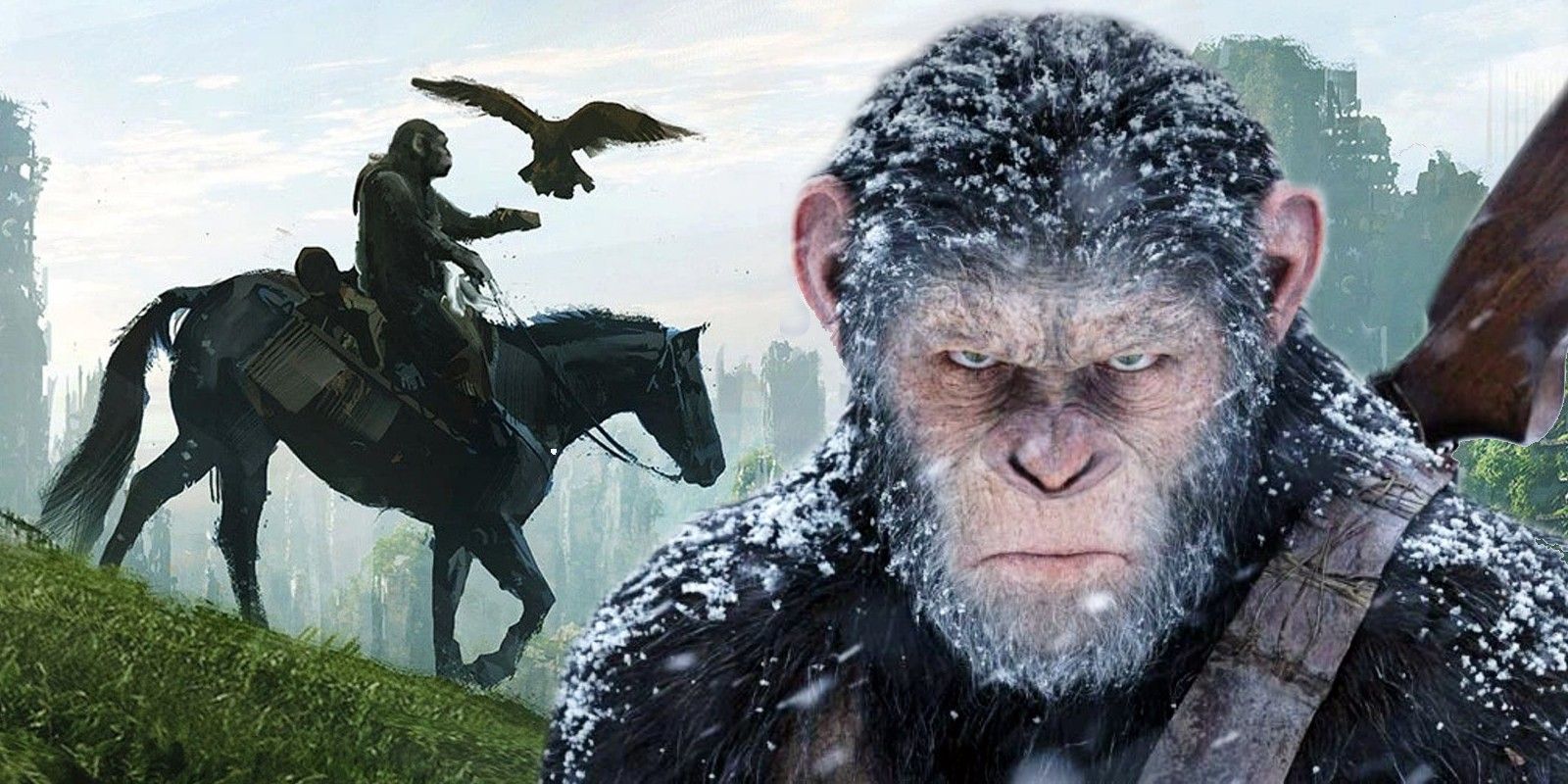
Kingdom of the Planet of the Apes: Release Date, Cast, Story, Trailer & Everything We Know
The Planet of the Apes reboot franchise is getting a fourth film, Kingdom of the Planet of the Apes, courtesy of its new owner, Disney.Planet of the Apes has an intriguing enough premise without throwing time travel into the mix, and the prequels proved that ignoring the infamous ending to the original 1968 Planet of the Apes in a reboot is a wise move, especially when considering the pitfalls of the Burton conclusion which tried (and failed) to top it.
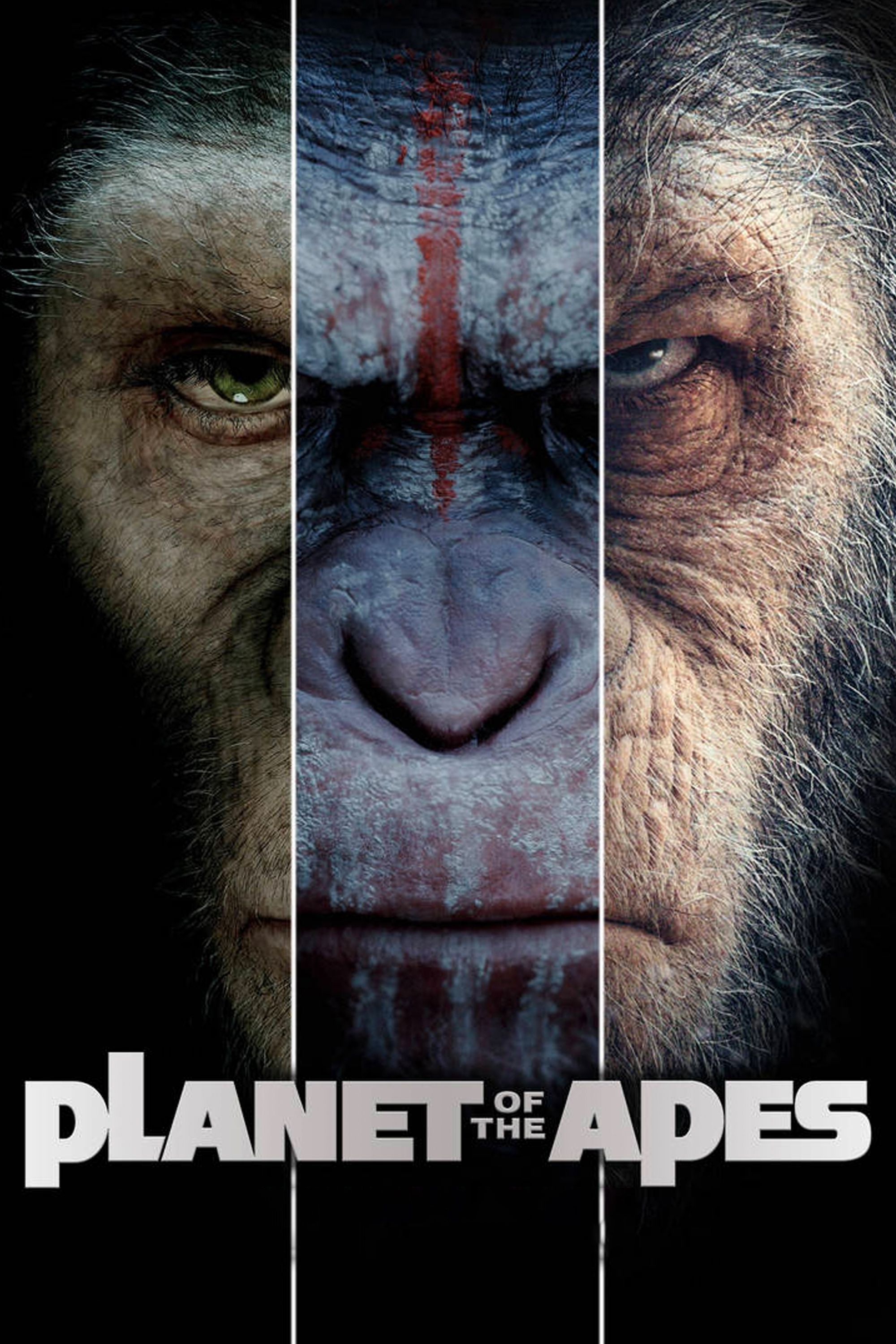
Planet of the Apes
Planet of the Apes is a multimedia sci-fi franchise that began in 1963 with Pierre Boulle's novel, which was later adapted into a film in 1968 starring Charlton Heston. The success of the movie led to four sequels, two TV shows, a remake from Tim Burton, and a reboot trilogy. The Planet of the Apes franchise has also seen success in video games and comic books.
- Created by
- Pierre Boulle
- First Film
- Planet of the Apes
- First TV Show
- Planet of the Apes
- Cast
- Charlton Heston , Roddy McDowall , Kim Hunter , Maurice Evans , James Whitmore , Linda Harrison , Mark Wahlberg , Helena Bonham Carter , Tim Roth , Michael Clarke Duncan , Paul Giamatti , James Franco , Andy Serkis , John Lithgow , Freida Pinto , Gary Oldman , Keri Russell , Kodi Smit-McPhee , Jason Clarke , Toby Kebbell , Judy Greer , Woody Harrelson , Amiah Miller , Kevin Durand , Dichen Lachman , William H. Macy , Owen Teague , Freya Allan
- TV Show(s)
- Planet of the Apes , Return to the Planet of the Apes

